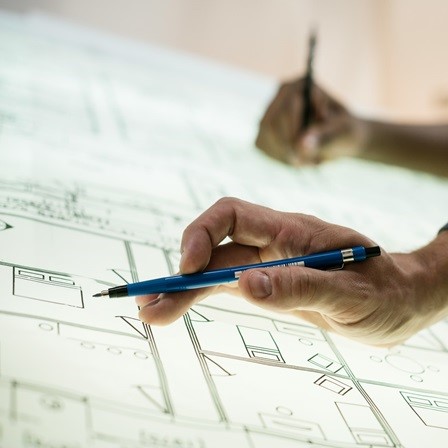We specialize in delivering efficient, sustainable, and innovative designs that prioritize occupant comfort, minimize maintenance, and align seamlessly with project visions. With expertise spanning private, commercial, industrial, and government sectors, we handle projects of all scales—from dream homes, schools, health care centres to other community infrastructure. Whether it's a retrofit, renovation, or new construction, our mechanical engineers design and optimize systems tailored to unique needs. Our expertise in HVAC systems, plumbing systems, fire protection systems, fuel oil systems, and energy management ensures efficient, cost-effective, and environmentally sustainable solutions. Through close collaboration with clients and multidisciplinary teams, we integrate systems that enhance comfort, safety, and long-term value.
An HVAC (Heating, Ventilation, and Air Conditioning) system is a vital component of any building, ensuring optimal indoor air quality, temperature control, and comfort for occupants. Regulating heating and cooling to maintain a consistent environment, regardless of external weather conditions is crucially important. Additionally, this helps promote energy efficiency, reduce humidity, and filter out pollutants and allergens, creating a healthier and more productive indoor space. A well designed HVAC system is crucial for the longevity of the building, as it helps prevent issues like mold growth and structural damage caused by poor air circulation or temperature extremes. Our HVAC system design approach ensures and considers climatic effects to provide the greatest occupant comfort.
Load calculations and system sizing.
Heat and energy recovery ventilation systems design.
Hydronic, electric, and biomass heating system designs.
Integration of controls for best performance and optimal comfort.
System condition assessments and code/upgrade recommendations.
A plumbing system is essential in any building, providing the infrastructure for the safe and efficient delivery of clean water and the removal of wastewater. It ensures access to vital resources for daily activities such as drinking, cooking, cleaning, and sanitation. A well-designed plumbing system also protects public health by preventing contamination and supporting hygienic conditions. Additionally, it contributes to water conservation and energy efficiency through modern fixtures and technologies. We ensure and approach the design of plumbing systems to safeguard the building’s integrity, prevent costly damages, and enhance the overall quality of life for its occupants.
Plumbing system load calculations and design.
Complete domestic water distribution and sanitary system designs.
Tanked domestic water and sewage systems for off grid locations.
Fixture selections, for maximum efficiency and water conservation.
Greywater and rainwater harvesting solutions.
System condition assessments and code/upgrade recommendations.
A fire protection system is a critical safety feature in any building, designed to safeguard lives, property, and assets from the devastating effects of fire. By utilizing detectors, alarms, sprinklers, extinguishers, and suppression systems that work together to detect, contain, and extinguish fires quickly. These systems provide early warning, enabling timely evacuation and minimizing damage. We provide reliable fire protection systems solutions that not only protect occupants but also ensure the building’s structural integrity, making it a cornerstone of a comprehensive safety strategy.
Code-compliant fire suppression system design.
Coordination with fire alarm and detection systems.
Hydraulic calculations and hazard analysis.
Energy efficiency and sustainability are essential in modern building design, as this reduces environmental impact, lowers operating costs, and creates healthier living and working spaces. Implementing energy-efficient technologies and renewable energy sources minimizes energy consumption and carbon emissions. Sustainable design practices, such as natural ventilation and free cooling, contribute to resource conservation and environmental preservation. Our approach and efforts not only comply with green building standards but also enhance occupant comfort and promote long-term economic and ecological benefits, making sustainability a crucial aspect of responsible building design.
Energy modeling, life cycle / condition, and cost analysis.
Integration of renewable energy sources.
Design strategies to minimize carbon footprint.
LEED and other green building certification support.
Fuel oil systems play a vital role in buildings that depend on oil as a primary or backup energy source for heating, power generation, or emergency systems. These systems provide a consistent and reliable fuel supply to critical equipment, including boilers, generators, and furnaces, ensuring uninterrupted operations during power outages or when alternative energy sources are unavailable. Designed with a focus on efficiency, safety, and environmental compliance, our fuel oil systems minimize leaks and emissions while meeting stringent regulatory standards. This reliability is especially critical for facilities like hospitals and industrial buildings, where operational continuity is paramount.
Tanked fuel oil systems.
Bulk tank fuel storage for facilities.
Auxiliary fuel systems for heating and power generation equipment.
Automated controllers for maximized hand-off system operation.
System condition assessments and code/upgrade recommendations.

